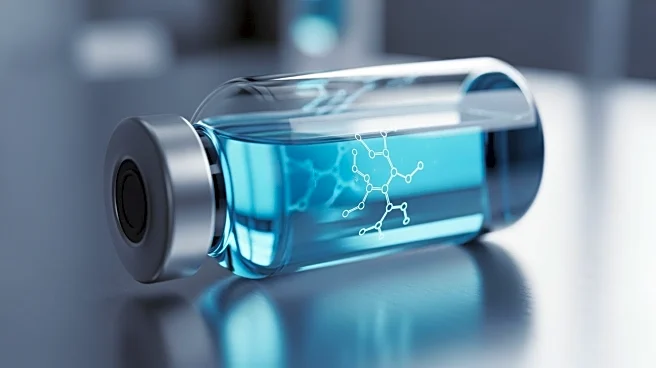What's Happening?
Naolys has introduced ExoCell, a groundbreaking biotech platform that utilizes plant-derived exosomes to enhance skincare products. ExoCell leverages nano-sized extracellular vesicles secreted by plant cells to mimic the skin's natural intelligence, offering a new approach to skincare. This innovation is built on Naolys' proprietary cell culture platform, allowing for the development of bespoke active ingredients from selected plant exosomes. The platform promises efficacy, sustainability, and natural origin, providing formulators with the tools to create clean and differentiated skincare solutions. The debut active ingredient from the ExoCell collection is Aethelis Granata, which aims to redefine well-aging and skin rejuvenation.
Why It's Important?
The introduction of ExoCell represents a significant advancement in the skincare industry, emphasizing the growing trend towards sustainable and natural products. By harnessing plant exosomes, Naolys is tapping into biomimicry and cellular science to offer innovative solutions that align with consumer demand for eco-friendly and effective skincare. This development could potentially shift industry standards, encouraging other companies to explore similar technologies. The focus on natural origin and sustainability also reflects broader societal shifts towards environmentally conscious consumption, impacting how skincare products are formulated and marketed.
What's Next?
Naolys is expected to expand its global presence through strategic partnerships in Europe and Asia, enhancing its distribution network. This expansion could lead to increased availability of ExoCell-based products in international markets, potentially influencing global skincare trends. As the platform gains traction, other skincare brands may seek collaborations with Naolys to incorporate plant exosome technology into their products, further driving innovation in the industry.
Beyond the Headlines
The use of plant exosomes in skincare raises interesting ethical and scientific questions about the intersection of biotechnology and natural product development. As this technology evolves, it may prompt discussions on the balance between scientific innovation and traditional botanical practices, as well as the regulatory implications of using advanced biotech in consumer products.








